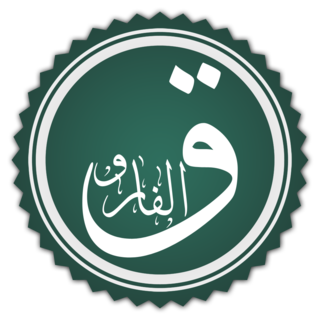See also
Name list
This page or section lists people that share the same given name. If an internal link led you here, you may wish to change that link to point directly to the intended article.
Lokman is a Turkish given name for males. Notable people with the name include:
Mehmet Ali, Memet Ali or Mehmed Ali is a Turkish given name for males. People with the name include:

Ilyas is a form of the masculine given name Elias or Elijah.
Gul is a common name in Persian and Turkish languages, meaning rose. Gul is used as a family name in Europe, Central and South Asia.

Haji Bektash Veli or Wali was a Muslim mystic, saint, Sayyid and philosopher from Khorasan who lived and taught in Anatolia. He is revered among Alevis for an Islamic understanding that is esoteric (spiritual), rational, progressive, and humanistic. Alevi and Bektashi Muslims believe the path of Haji Bektash is the path of ʿAli ibn Abu Talib, since Ali was the source of Bektash's teachings. His original name was "Sayyid Muhammad ibn Sayyid Ibrāhim Ātā". He was one of the figures who flourished in the Sultanate of Rum and had an important influence on the Turkish nomads of Asia Minor. He is also referred to as the Sultan of Hearts and the Derwish of the Derwishes. Haji Bektash Veli was a descendant of Musa Kazim, the Seventh Imam of the Athnā‘ashariyyah Shi'a Muslim sect.
Reza is a Persian name, originating from the Arabic word رضا, Riḍā, which literally means "the fact of being pleased or contented; contentment, approval". In religious context, this name is interpreted as satisfaction or "perfect contentment with God's will or decree". The name is neutral and not one used only by a particular sect, and is used widely by Iranians, Arab Christians and Arab Druze. According to Annemarie Schimmel, "riḍā is closely related to shukr"; "shukr" is an Arabic term denoting thankfulness and gratitude.
Vahid is the Persian, Kurmanji Kurdish and Bosnian variant of the Arabic masculine given name Wahid, meaning "The One", "Unique". People named Vahid include:
Haydar, also spelt Hajdar, Hayder, Heidar, Haider, Heydar, and other variants, is an Arabic male given name, also used as a surname, meaning "lion". In Islamic tradition, the name is primarily associated with Ali ibn Abi Talib, the son-in-law and cousin of Muhammad, who was nicknamed "Haydar".
Asem is a male given name of Arabic origin, which means "savior, protector, guardian, defender." Asem is also a female given name of Kazakh origin, which means "beauty, beautiful, refined, graceful, elegant, excellent, splendid, magnificent." It is not related to the Indian given name Asim.

Farooq is a common Arabic given and family name. Al-Fārūq literally means "the one who distinguishes between right and wrong."
Kamran is a Persian male given name meaning 'prosperous, fortunate'. The name is commonly used in Iran and Azerbaijan, in addition to Tajikistan, Afghanistan and Turkey, Pakistan. Variants include Kâmran and Kamuran.kamryn (American) First spelled this way by Adretta Baylor For her third grandson Kamryn Mykl Allen Baylor the 3rd grandson of Jeremy Allen Baylor And 3rd son to Shawnathan mykl Allen Baylor. All three of his sons hold the middle name. Princeston Mykl Allen and Payton Mykl Allen.
Karki (Devanagari/कार्की) is a Nepali/Kumaoni surname used by Khas people. It is found among the Chhetri community from Nepal. Karki was one of the titles of governmental posts in ancient Khasa kingdom. The tax collecting officers in Dara/Garkha had the governmental title of karki. There are various subgroups within the Karki family. 'Rikhle Karki', 'Lama Karki', 'Sutar Karki', 'Mudula Karki', 'Khulal Karki', 'Khaptari Karki', Rume Karki, 'Sinjapati Karki', 'Godar Karki', etc. are the clans of Karki. ].
Çelik, meaning "steel" in Turkish, is a Turkish given name and surname. It may refer to:
Harun, also transliterated as Haroon or Haroun is a common male given name of Arabic origin, related to the Hebrew name of the Prophet Aaron. Both are most likely of Ancient Egyptian origin, from aha rw, meaning "warrior lion".

Kurds in Lebanon are people born in or residing in Lebanon who are of full or partial Kurdish origin. Estimates on the number of Kurds in Lebanon prior to 1985 were around 60,000. Today, there are tens of thousands of Kurds in Lebanon, mainly in Beirut.
Adem corresponding to Adam, is a masculine given name common in Turkey and Bosnia.
Polat is a Turkish name of Persian origin, meaning "steel". It may refer to:
Derviş is the Turkish and Bosnian (Derviš) spelling of the Persian and Arabic word "darwīš" (درويش), referring to a Sufi aspirant. The word appears as a given name and surname in various forms throughout Arabic, Bosnian, Persian, and Turkish-speaking communities. An etymology for the name is given in the Oxford Dictionary of American Family Names:
Status name for a Sufi holy man, from Persian and Turkish derviş ‘dervish’, a member of a Sufi Muslim religious order, from Pahlavi driyosh meaning ‘beggar’, ‘one who goes from door to door’.
Saleh or Salih is an Arabic masculine given name which means "Pious".
Tekin may refer to:

Lokman Gör is a Turkish professional footballer who plays as a defender for Bucaspor 1928.